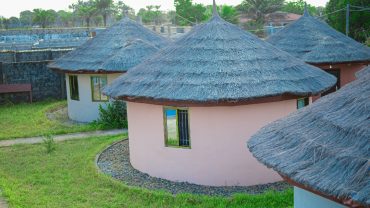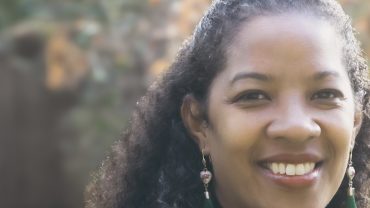Suba Ranka picked up his cutlass, wiped the blood with his fingers and smiled. He had killed again. Only this time, the victim was a goat. He meticulously picked his nose and looked around. He was getting really good at this; chasing goats and chickens around the barre and killing them one after another.
Last night, as he ran around the village looking for goats and chickens, he realized that the moon had suddenly disappeared. The place had gotten dark and his victims were hard to find. He had killed the moon, too.
Story-telling was part of our growing up in Freetown. I have always been fascinated with the so-called tales of the forest, the Bra Spider and the Cunny Rabbit stories. And the moral to these stories. My favorite one was Good Baba and Bad Baba; the story of one brother who performed good deeds along the way, on their journey across town, and his evil brother who finally got caught and had to pay for this evil ways.
The reason for re-living those days of storytelling, night lamps and cheap fast food is not only for nostalgia and the fact that our kids, born and raised in America, and in spite of their electronic gadgets and video games are missing on these fundamental rite of passage, of growing up, but because some of us sometimes fail to appreciate the contribution of these stories and their storytellers and the impact they made on our lives. There is something to be said, if your will, of the oral tradition, of telling stories and its significance in the broader society. As I look back, growing up in Central Freetown, I think of those halcyons days when we would rush to then Victoria Park, to watch Tabule Experimental Theatre’s improvisation performance at the central bandstand. How easy it was for Dele Charley and his crew to transform ordinary tales into improvised act not only to entertain but to teach. There were folks like Dennis Streeter, Raymond De Souza George, Julius Spencer and Bunting Shaw, to name a few.
Tabule Theatre — and the then emergent crew, Freetown Players with Charley Haffner – resonated well with the tradition of transforming stories into actual performances on stage or in street corners. I am reminded of those performances every time I walk through the streets of a major metropolitan city in America, like New York City or Los Angeles. How I wish most of those performances were in print so we could fall back unto them, from far away in distance and time.
Well until I stumbled upon them.
I visited the University of California, Los Angeles library one beautiful afternoon when I worked there as a Research Associate, at the Department of Chemistry and Biochemistry. I happened to stumble upon Thomas Decker’s JULIOHS SIZA, a Krio translation of William Shakespeare’s JULIUS CEASAR. I did own a copy of Raymond De Souza George’s BORBOH LEF, a spectacular play that was performed at the LIFT Festival in the UK circa 1982, with the assistance of the British Council. BORBOH LEF featuring Sorius Samura was a hit, so was the series of performances performed at the Mary Kingsley Auditorium at Fourah Bay College featuring my good friend, Dwight Short, in the leading role.
I also stumbled upon a BAD MAN BETE PAS EMTI OS by Esther Taylor-Pearce, GOD PAS KONSIBUL by Lawrence Quaku Woode, and PETIKOT KOHNA by Dele Charley. But the big enchilada, the surprise of surprises, was to stumble upon a book titled THEATER IN SIERRA LEONE: FIVE POPULAR PLAYS, edited by Iyunolu Osagie. The collection included masterpiece like BLOOD OF A STRANGER by Dele Charley, a play that was performed at the FESTAC in Nigeria in 1977. The other surprise was John Kolosa Kargbo’s LET ME DIE ALONE, by a playwright who, arguably, was the best to come out of Sierra Leone’s theater world. As a kid, I watched Kolosa direct plays like POYOTONG WAHALA and EKUNDAYO. He was instrumental, challenging and detailed. He was a fearless warrior.
There is more to Sierra Leone’s contribution to African literature than we can ever imagine. Stumbling upon such gems only helps you to put things in perspective; that the little things we learned along the way, the performances we watched on street corners and in small makeshift baffas, would forever make a lasting impact on your life.
He took one more look at the dead goat. I am going to pluck the wings off the goat before it flies away. He was really good at this. Last night, just before the moon disappeared, he had sworn that one day he would
take a big knife, climbed the court barre wall and take a stab at the moon. He didn’t know why and he didn’t care. He knelt down, placed the goat towards the east and started praying:
“kru O, kru! Bless this boy, this son of yours. I bring happiness to your face don’t you see ?” He was getting upset as he continued to pray. “I bring you goat meat, can’t you see?” He was sweating profusely. Not from chasing the goats and chicken; he wasn’t sweating then, he swore. He was sweating from praying.
Suba Ranka was rejuvenated by the sudden reappearance of the moon. It was bright again and the constant
perturbation of his heart and the sad rhythm it played was gone. He wasn’t sweating anymore. He picked up his cutlass and ran for the hills, towards the moon.




Comment (0)